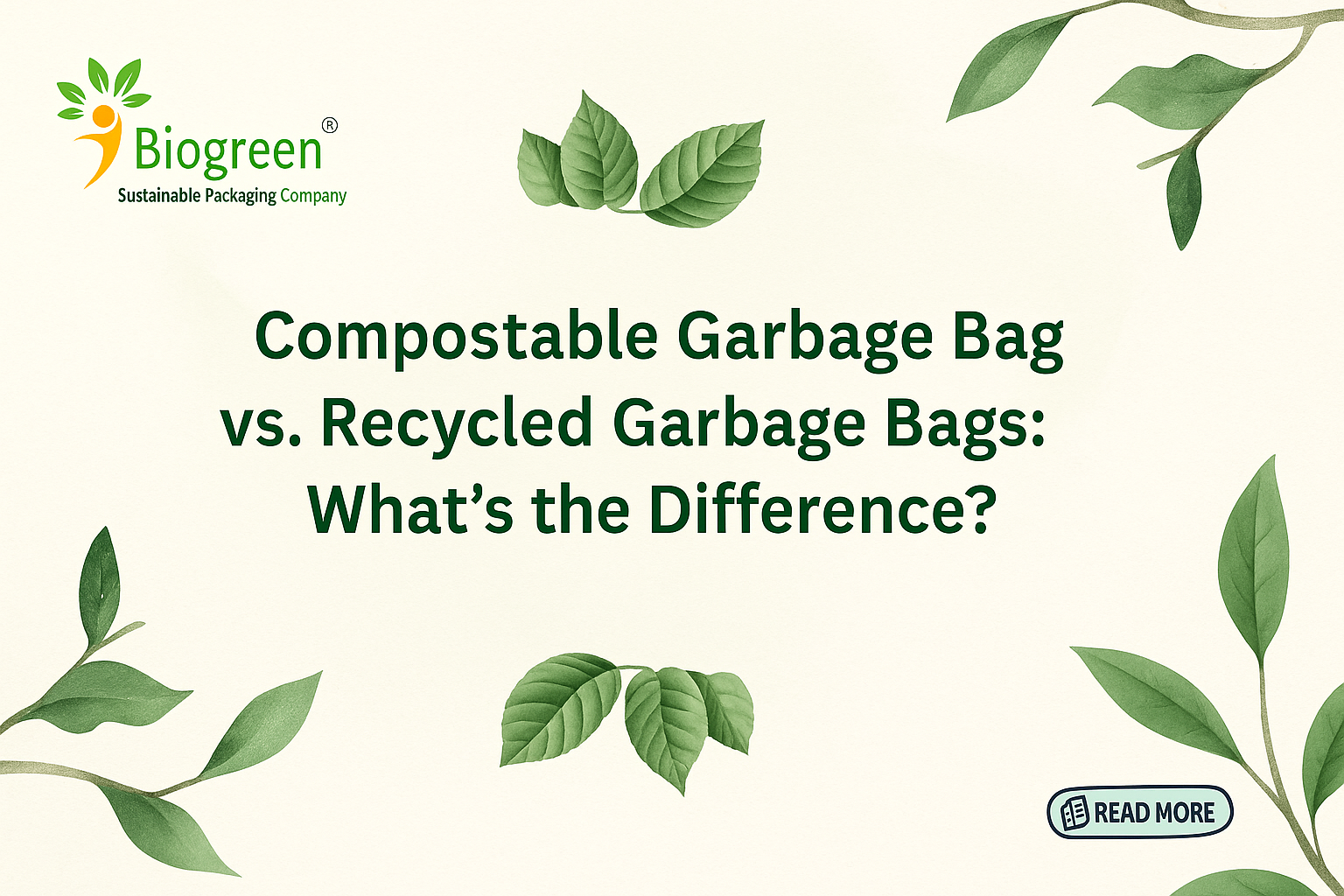Introduction
It’s confusing when you’re trying to choose the best trash bag. A recyclable plastic bag or a compostable garbage bag? They both sound like they’re so much better for the planet, but they work differently. Let’s simplify so that you’ll know the best way to make the best decision for your family and the planet.
What Are Compostable Garbage Bags?
A plant-based material bag, like cornstarch or PLA (polylactic acid), is used. They will break down in a compost pile and become soil rather than decompose in landfills for centuries. They work best on food waste and compostables.
You can even use compostable waste bags, which are single-use, like a garment bag for clothing or a courier bag for green delivery.
What are the Recycled Garbage Bags?
Recycled garbage bags are made by manufacturing plastic that has already been created and rebuilt. They save waste by recycling plastic, but not degrading it as compost bags. Instead, they reduce the quantity of new plastic required.
Heavy-duty and strong reusable bags can be employed to carry bulk trash. They, however, end up as landfill or a recycling plant after use.
Key Differences: Compostable Garbage Bags vs. Recycled Garbage Bags
| Feature | Compostable Garbage Bags | Recycled Garbage Bags |
| Material Source | Plant-based (e.g., cornstarch, PLA) | Recycled plastic |
| Breakdown Process | Decomposes into organic matter in composting conditions | Does not decompose easily; breaks down slowly over the years |
| End-of-Life | Turns into compost in home/industrial compost setups | Stronger, better for heavy or sharp trash |
| Environmental Impact | Low; leaves no toxic residue | Does not decompose easily; it breaks down slowly over the years |
| Strength & Durability | Suitable for light waste like food scraps | Stronger; better for heavy or sharp trash |
| Best Use Case | Composting food and organic waste | General trash disposal |
| Certifications | Often “Home” or “Industrial Compostable” certified | May show recycled content percentage |
| Related Eco Products | Carry bags, grocery bags | Agarbatti-bags, mailer-bags |
Environmental Impact and Biodegradability
Compost trash bags certainly have a green benefit. They contain no toxic leachate and will decompose in months. They are even edible for humans as food waste.
Recycled garbage bags alone contribute to plastic waste, but reduce the amount of virgin plastic being made. They will gradually decompose and leach microplastics into the earth.
For wrapping and storage, you may use alternatives like biodegradable bubble wrap and biodegradable compostable cling wrap, nontoxic alternatives to wrap and store.
Which Garbage Bag Is Best for Your Needs?
It’s your lifestyle:
Choose a compost bag if you’re composting your own trash or if you want to go totally green.
Use recycled trash bags if you need heavy-duty trash bags and you’d prefer to reduce plastic use.
For pet owners, a biodegradable bag to clean up after dog poop is an ideal example of the proper way to handle waste.
If you are a business that ships products, then starting as a stretch film business can go green for your business.
Final Thoughts
Both the compostable trash bags and the recycled trash bags contain environmentally friendly content. Compostable trash bags go a step further by disintegrating completely and recycling back to nature. Either of them, however, you’re doing your bit towards waste elimination and planet saving.
FAQs
1. Is it okay to home compost with compostable garbage bags?
Yes, it is mostly so. But other industrial composting facilities to break down into. Select the ones that have “home compostable.”
2. Is garbage bag food waste composting acceptable?
Actually, they are perfect for kitchen trash and leftovers. They are capable of breaking down organic materials.
3. Are landfills biodegradable for compost bags?
Not necessarily. They require oxygen, water, and microbes to decompose, which landfills cannot always supply.
4. Which trash bag is better for the environment?
Compost bags are better for the environment because they can easily break down without contaminating the water and ground.
5. How long would it take for a compostable trash bag to biodegrade?
It takes around 90 to 180 days in optimal composting conditions.
6. Are compostable trash bags more expensive than the recyclable bags?
But the environmental benefit is typically well worth it.



